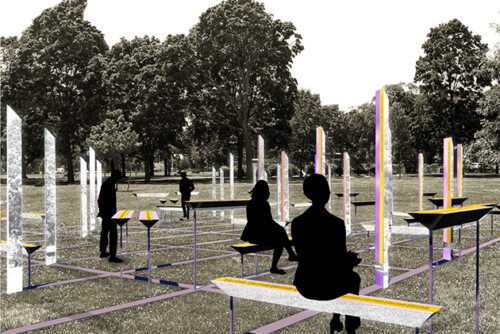Baker’s logic for selecting twelve ethnically and religiously distinct children was no less metonymic than Bouillon’s taxonomy—indeed, as names like Brahim and Marianne suggest, the children were both chosen and, in many cases, named for their ability to represent ethnicities and religions that were manifestly divided, as were Algerians and French colonial pieds-noirs at the time of the children’s adoption, during the Algerian War. The symbolic nature of the rainbow tribe extended beyond this metonymic form of representation, however, comprising Baker’s broader theory of adoption as a calculated, albeit compromised form of symbolic militancy against the politics of segregation in the United States. That is, Baker’s ideas about adoption—and I mean here both the literal adoption of children, as well as the more figurative adoption of French nationalism—were forged in opposition to the biological determinism that still characterized race relations in the postwar United States. Baker was far from the naïve idealist she is often portrayed as having become in her later years when, separated from Bouillon, she was forced to tour continually and ultimately had to sell Les Milandes at auction to cover her debts. Bouillon, in particular, helped promulgate this negative image when, in his contributions to Baker’s autobiography, he repeatedly foreshadows the chateau’s bankruptcy, writing of how he “realized yet again that Josephine was much too pure and childlike for our times” and that he needed to protect her idealism and dedication. 1 Ishmael Reed echoes this sentiment in more withering terms in a 1976 review of Steven Papich’s book Remembering Josephine. Whereas Reed’s review begins by comparing Baker to God, it ends by ridiculing “the doomed multi-cultural experiment in which she brought together children of all races in hopes of building a community of brotherhood at Milandes. The children hated each other. One of the ungrateful wretches called her a ‘slut,’ after which she suffered her first heart attack. The others became junkies, thieves, bleeders, and cry-babies.” 2
But how quixotic was Baker’s adoptive project? If anything, the project was marked by a surfeit of pragmatism. Far from some utopian ideal, Les Milandes remains significant precisely for its geographical specificity: envisioned as a center for international tolerance and fraternity, its relation to a universal humanism hinged upon its quaint rural setting in southwestern France, removed from metropolitan Paris or New York. What made the chateau’s physical setting significant was its symbolic value as a bastion of non-cosmopolitan Frenchness. Baker’s insistence on situating her global village on French soil reveals her efforts simultaneously to appeal to and ignore the French Republic’s assimilationist colonial policies, toward which her pre-war performances had so notably been co-opted. As she wrote in a letter to the French Prime Minister Georges Pompidou in 1966, Baker envisioned a College of Brotherhood at Les Milandes as a place where students of color from Africa and the Caribbean could avoid the disenfranchisement they faced in other French cities, where their loitering was a disappointment to the hard-working parents back home who had struggled to send them to school in France. The pastoral environment of Les Milandes, she argued, could keep students interested. Baker also stressed that it was her fidelity to “la Douce France”—and her faith in what France stood for—that kept her there, even though a number of African, South and Central American countries had all proposed, she claimed, that she found similar global village projects there.
The broad, pluralistic humanism that guided Baker’s formation of the “rainbow tribe” at Les Milandes reflected her belief in the ability to transcend the national and biological categories her pluralism nonetheless presupposed. Like the United Nations, Baker’s adoptive practices were based on the humanistic paradox of institutionalizing tolerance and friendship as a kind of supplement to existing social and political conditions: regardless of how natural or inalienable these ethical bonds might be, they still required administration. As she asserted in countless lectures, interviews, and letters, the traditional categories of nation, family, and race she regarded as biologically fixed were not deterministic. That is, they could not be abolished, but they could be voluntarily supplanted.



